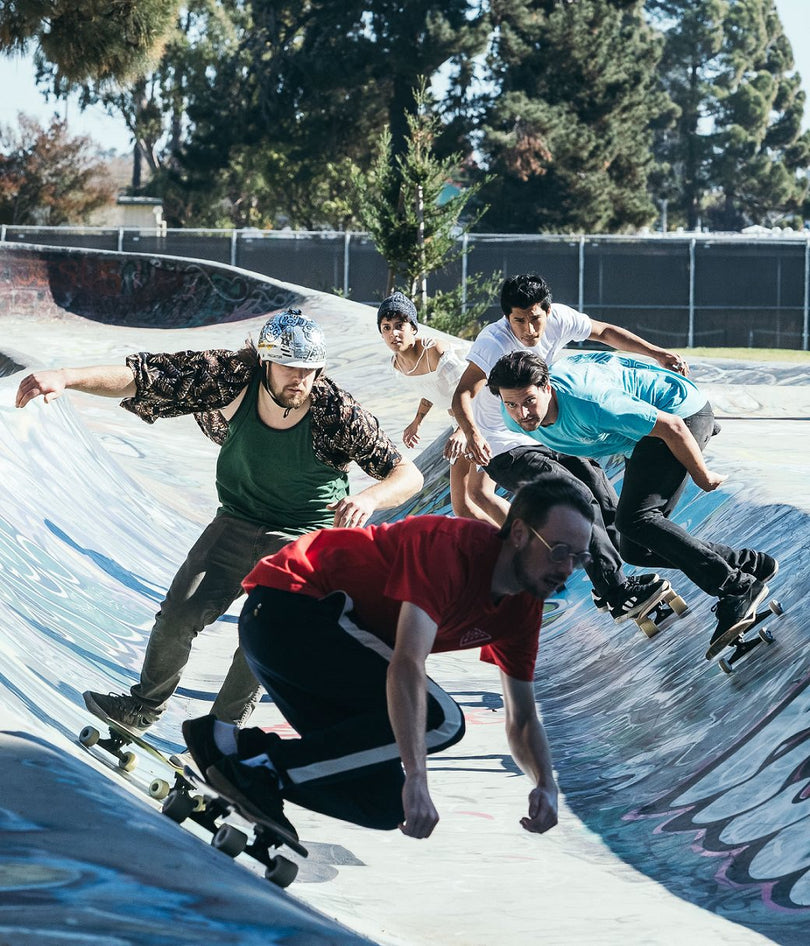How much caffeine is in Red Bull? If you’re curious about this, you’ve come to the right place. Read on, to find the answer. 🐂
Best Red Bull Flavors
-
🐂
Original
Red Bull -

- Why it's rad: The original, and still the best.
- Buy at Amazon
-
🥤
Sugar Free
Red Bull -

- Why it's rad: All the taste, none of the sugar.
- Buy at Amazon
-
🐂
Watermelon
Red Edition -

- Why it's rad: Who doesn't love watermelon? 🍉
- Buy at Amazon
What is Red Bull?
Red Bull is an energy drink that was created in Austria in 1987. It is sold in over 170 countries and contains no artificial colors or flavors. The company slogan is "Red Bull gives you wings."
Red Bull has been linked to a number of health concerns, including death. In 2012, a study found that energy drinks like Red Bull can increase the risk of heart attack and stroke. In 2014, a 19-year-old man in the UK died after drinking four cans of Red Bull.
Despite these concerns, Red Bull remains one of the most popular energy drinks on the market. It is often used by people who need an extra boost of energy, such as athletes or students.
What are the different types of Red Bull?
There are four different types of Red Bull energy drink: Original, Sugarfree, Total Zero and Red Bull Editions.
Original is the classic Red Bull flavor, while Sugarfree contains no calories. Total Zero has zero calories and carbohydrates, and is aimed at athletes and fitness enthusiasts. Red Bull Editions include various fruit-flavored variants.
Each type of Red Bull contains caffeine, taurine, B-group vitamins and sucrose or glucose. The exact ingredients vary slightly between the different types.
How much caffeine is in Red Bull compared to a coffee?
A can of Red Bull contains 80 milligrams of caffeine, while a cup of coffee from Starbucks can range from 70-140 milligrams. So while there is more caffeine in some coffees than there is in a can of Red Bull, it is not always the case. It really depends on the type and size of coffee you are drinking. In general, though, Red Bull will have more caffeine than your average cup of joe.
How much caffeine is in a 12 oz bottle of Red Bull?
A 12 oz bottle of Red Bull contains approximately 80 mg of caffeine. This is about the same amount of caffeine as in a cup of coffee. However, it is important to remember that energy drinks can also contain other stimulants, such as guarana and taurine, which can increase the overall effect. Therefore, it is best to limit your intake of energy drinks to no more than one per day. If you are sensitive to caffeine, you may want to avoid energy drinks altogether.
How many Red Bulls equal a cup of coffee?
This is a question that gets asked often, and unfortunately, there is no easy answer. The caffeine content in energy drinks can vary widely, and even different types of coffee can have different amounts of caffeine. So to get a definitive answer, you would need to know the exact caffeine content of the specific energy drink and coffee you're comparing.
However, we can give some general guidelines. A typical 8oz cup of coffee has around 95mg of caffeine, while a can of Red Bull has about 80mg. So based on these numbers alone, you would need to drink slightly more than one cup of coffee to get the same amount of caffeine as one can of Red Bull.
Of course, there are other factors to consider as well. The caffeine in energy drinks is often combined with other ingredients that can give you a boost of energy, while the caffeine in coffee is usually unaccompanied. So even if the caffeine content is lower in an energy drink, you may still feel more energized after drinking it.
At the end of the day, it's hard to say exactly how many Red Bulls equal a cup of coffee. It depends on a variety of factors, and ultimately it's up to you to decide what works best for you.
Is Red Bull too much caffeine?
This is a question that has been asked by many people, particularly those who are concerned about their caffeine intake. Red Bull is a popular energy drink that contains a significant amount of caffeine. While the exact amount of caffeine in Red Bull varies depending on the country in which it is sold, it typically contains around 80mg of caffeine per 8.4oz can. This is significantly more than the average cup of coffee, which contains around 95mg of caffeine.
So, is Red Bull too much caffeine? The answer to this question depends on the person asking it. Some people may be more sensitive to caffeine than others and may find that even small amounts make them feel jittery or anxious. For these people, Red Bull may indeed be too much caffeine. Others, however, may find that they can handle larger amounts of caffeine without any negative effects. Ultimately, it is up to the individual to decide whether or not Red Bull is too much caffeine for them.
What is the caffeine content of a Red Bull?
A Red Bull energy drink contains about 80mg of caffeine per can. This is roughly the same amount of caffeine as you would find in a cup of coffee. While this may not seem like a lot, it's important to remember that energy drinks are often consumed much more quickly than coffee. This means that the caffeine hits your system all at once, which can lead to jitters and an increased heart rate. If you're sensitive to caffeine, it's best to avoid energy drinks altogether.
How long does Red Bull stay in your system?
How long does Red Bull stay in your system?
Red Bull is an energy drink that contains caffeine, taurine, and other ingredients. It is popular among people who need an energy boost, such as athletes or students. The effects of Red Bull can last for several hours, but the exact amount of time depends on various factors.
Factors that affect how long Red Bull stays in your system include:
- The amount of caffeine you consume: A can of Red Bull contains about 80 mg of caffeine, which is comparable to a cup of coffee. If you consume more than one can of Red Bull, the caffeine will stay in your system for a longer period of time.
- Your body weight: Caffeine is metabolized more quickly in people who weigh more. Therefore, Red Bull will stay in your system for a shorter period of time if you weigh more.
- Your metabolism: Some people have a faster metabolism than others, which means that they break down caffeine more quickly. Red Bull will stay in your system for a shorter period of time if you have a fast metabolism.
- Whether you take medications: Certain medications can interact with caffeine and make it stay in your system for a longer period of time. If you take any medications, be sure to check with your doctor before drinking Red Bull.
The exact amount of time that Red Bull stays in your system is difficult to determine because it depends on so many individual factors. However, you can expect the effects of Red Bull to last for several hours after you drink it.
What is the healthiest way to drink Red Bull?
There is no definitive answer to the question of whether it is healthier to drink Red Bull with or without sugar. However, some experts believe that consuming Red Bull without sugar may be better for your health in the long run.
One reason for this is that sugary beverages can contribute to weight gain and obesity, which can lead to a host of other health problems. Additionally, sugar has been linked to an increased risk of cavities and other dental problems.
Of course, everyone's body is different and there is no one-size-fits-all answer to the question of whether it is healthier to drink Red Bull with or without sugar. Ultimately, it is up to each individual to decide what is best for their own health. However, if you are looking to cut down on sugar, drinking Red Bull without it may be a good option.
What are some other drinks with caffeine?
Caffeine is a stimulant that occurs naturally in many plants, including coffee beans, tea leaves and cocoa beans. It's also added to some foods and beverages.
Caffeine is absorbed from the gastrointestinal tract and then passes into the bloodstream, where it has various effects on the body.
At moderate doses (200-300 milligrams), caffeine can:
- Stimulate the central nervous system
- Increase alertness
- Improve mood
- Enhance cognitive function
- Delay fatigue
- Improve physical performance
At high doses (400 milligrams or more), caffeine can cause:
- Anxiety
- Agitation
- Insomnia
- Gastrointestinal upset
- Rapid heartbeat
- Muscle tremors
- Confusion
Caffeine is addictive and can lead to dependence. Withdrawal symptoms, such as headaches and fatigue, can occur if someone suddenly stops using caffeine after regular use. These symptoms are usually mild and go away within a few days.
The amount of caffeine in a food or beverage depends on how the product is prepared. For example, coffee generally contains more caffeine than tea. The table below lists the approximate amount of caffeine in some common foods and beverages:
Brewed coffee, 8 ounces, 95-165 mg caffeine
Brewed tea, 8 ounces, 24-70 mg caffeine
Soda, 12 ounces, 22-38 mg caffeine
Energy drink, 8 ounces, 27-164 mg caffeine
Chocolate milk, 8 ounces, 5 mg caffeine
Milk chocolate candy bar, 1.55 ounces, 6 mg caffeine
Semisweet chocolate chips, 1 tablespoon, 2 mg caffeine
Caffeine pills, 1 pill, 200 mg caffeine
What is the recommended daily caffeine intake?
The average adult should consume no more than 400 milligrams of caffeine per day. Pregnant women and those who are breastfeeding should limit their intake to 200 milligrams per day. Children and adolescents should consume no more than 100 milligrams of caffeine per day.
These recommendations are based on the fact that caffeine is a stimulant and can have adverse effects at high doses, including increased heart rate, increased blood pressure, and insomnia. Caffeine is also a diuretic, which means it can lead to dehydration if consumed in excessive amounts. Therefore, it is important to moderate your caffeine intake to avoid these potential health risks.
What artificial sweeteners are used in energy drinks?
Most energy drinks contain some form of artificial sweetener. The most common artificial sweeteners used in energy drinks are aspartame, sucralose, and acesulfame potassium (Ace-K). Aspartame is the sweetener that is most often used in diet sodas. Sucralose is a newer artificial sweetener that is becoming more popular, especially in energy drinks. Ace-K is another artificial sweetener that is often used in energy drinks.
While there are some concerns about the safety of artificial sweeteners, they are generally considered to be safe for most people when consumed in moderation. However, some people may be more sensitive to the effects of artificial sweeteners than others. If you are concerned about the possible effects of artificial sweeteners, you can always choose an energy drink that is sweetened with natural sugar instead.
Has the FDA approved or regulated energy drinks?
The FDA has not approved or regulated energy drinks. However, the agency has received reports of adverse effects associated with their consumption, including heart palpitations, anxiety, and high blood pressure. The FDA is currently investigating these reports and will take appropriate action if necessary. In the meantime, consumers should be aware of the potential risks associated with energy drink consumption and should consult a healthcare professional before consuming them.
Caffeine content (per serving size) for espresso, soft drinks, and energy drinks
Espresso: 30-50 mg
Soft drinks (8 oz): 23-35 mg
Energy drinks (8 oz): 27-60 mg
The caffeine content in espresso is higher than that of soft drinks and energy drinks. However, the serving size for espresso is much smaller, so the overall amount of caffeine you would consume from drinking espresso is less than from soft drinks or energy drinks.
Complete list of ingredients in Red Bull
Red Bull contains high quality ingredients: caffeine, taurine, B-group vitamins and sucrose & glucose.
Caffeine: Caffeine helps to increase alertness and improve concentration. The caffeine content in Red Bull Energy Drink is approximately 32 mg/100 ml. This is about the same as in a cup of coffee.
Taurine: Taurine has several functions in the body which are important for athletes. It supports the metabolism and increases the output of energy from fats. Taurine also has a calming effect on the nervous system and can help to focus attention. The taurine content in Red Bull Energy Drink is approximately 1000 mg/100 ml.
B-group vitamins: B-group vitamins support energy metabolism. They are also important for the normal functioning of the nervous system. The B-group vitamin content in Red Bull Energy Drink is: niacin (Vitamin B3): 8 mg/100 ml, pantothenic acid (Vitamin B5): 6 mg/100 ml, vitamin B6: 1.4 mg/100 ml and vitamin B12: 0.0024 mg/100 ml.
Sucrose & Glucose: Sucrose and glucose are types of sugar that the body can easily convert into energy. The sucrose & glucose content in Red Bull Energy Drink is approximately 27 g/100 ml.
Red Bull is also available in a sugar-free version which contains the same high quality ingredients as the original. The only difference is that the sugar has been replaced by artificial sweeteners.
Side effects of Red Bull
Some of the more serious side effects associated with Red Bull consumption include:
-Anxiety
-Insomnia
-Headaches
-Increased heart rate and blood pressure
-Heart palpitations
-Dehydration
-Nausea and vomiting.
Red Bull Sugarfree - what’s the difference?
Red Bull sugarfree is a popular alternative to the original Red Bull Energy Drink. But what's the difference between the two?
Sugarfree drinks are often seen as a healthier option, but that doesn't mean they're completely calorie-free. In fact, many sugarfree drinks actually contain more calories than their sugary counterparts.
So, if you're looking for a lower-calorie alternative to Red Bull, sugarfree might not be the best option. However, if you're simply trying to avoid sugar, then sugarfree could be a good choice.
Sugar content of caffeinated beverages
Caffeinated beverages are often high in sugar content. This can lead to health problems, such as weight gain and cavities. To avoid these problems, it is important to be aware of the sugar content of your favorite drinks.
Here is a list of popular caffeinated beverages and their sugar content per serving:
-Coffee: 0 grams
-Tea: 0 grams
-Soda: 39 grams (1 can)
-Energy drink: 27 grams (1 can)
-Sports drink: 14 grams (1 cup)
As you can see, some caffeinated beverages are very high in sugar. If you consume these drinks regularly, you may want to consider reducing your intake or choosing a sugar-free version. Drinking water is always the best option, especially if you are trying to lose weight or prevent cavities.
Other factors to consider
A regular Red Bull Zero (8 fl oz) will be better than a normal Red Bull, since it maintains the same caffeine levels - only without all the sugar. Even small Red Bulls contain many grams of sugar, which is particularly harmful for young adults, and can eventually lead to heart disease (if consumed daily).
Energy shots (like 5-Hour Energy) are typically a better way to get your caffeine fix than soda like Coca-Cola. And sugarfree Red Bull is definitely a better option, if you want to stay slim.





